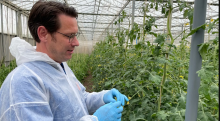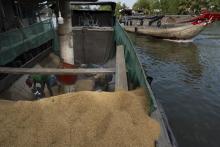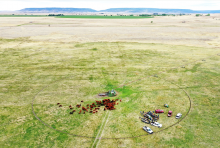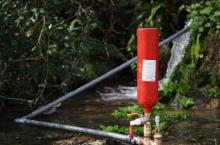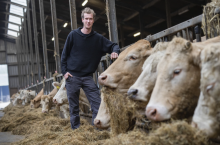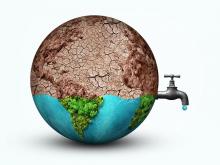LONG AN, Vietnam (AP) — There is one thing that distinguishes 60-year-old Vo Van Van’s rice fields from a mosaic of thousands of other emerald fields across Long An province in southern Vietnam’s Mekong Delta: It isn’t entirely flooded.
That and the giant drone, its wingspan similar to that of an eagle, chuffing high above as it rains organic fertilizer onto the knee-high rice seedlings billowing below.

